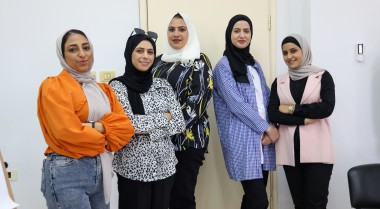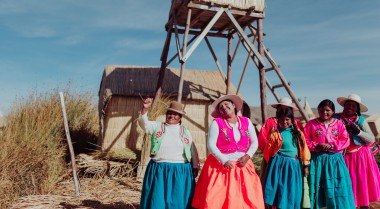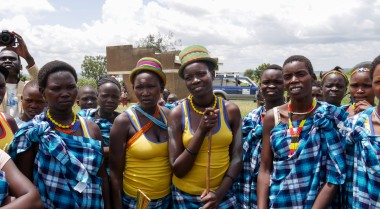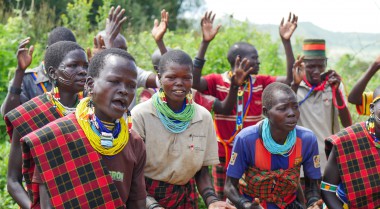
Uganda’s Peace Puzzle: Women’s advocacy and the timeless peace accord in Yumbe District
In this interview, Stella Mystica Sabiiti, co-founder of the Center for Conflict Resolution (CECORE) Uganda, offers profound insights into the world of peace agreements, emphasising the indispensable role of women, and the transformative power of advocacy. Stemming from her deeply personal experiences of navigating political upheaval and surviving personal trauma, Stella's journey into peacebuilding is marked by resilience and determination. From leading and coaching negotiations between rebel groups and the Ugandan government to the Asia-Pacific and Latin America and her influential roles within the African Union and UN Women, Stella has been at the forefront of conflict resolution efforts across Africa.
What sparked your journey into the world of peacebuilding in Uganda and what fuels your passion for this work after all these years?
My involvement in peacebuilding traces back to the tumultuous political climate and personal trauma I experienced in Uganda in the late 1970s and early 1980s. As a newly married university student expecting our first baby, I was abducted and tortured at the hands of soldiers during President Idi Amin’s regime in the 1970s. Through that harrowing ordeal, I realised the necessity of engaging with the soldiers on a human level, seeking the common ground of humanity instead of fearing them. In a moment guided by intuition, I found a path to connection through the shared experience of family. Whether the children were theirs or not, in Africa, you always have children, either yours or your neighbours or relatives. So, I addressed the leader of the military operation and initiated conversations with the soldiers about their families, asking a simple question: “What did your wife cook for you last night?” This question first shocked and angered them; then moved them emotionally and revealed their humanity. I saw tears in their souls. This moment inspired my commitment to working with armed groups if I survived, to cultivate peace. While my family and I were living in exile in Canada, the regime was overthrown in 1979, which led the soldiers who were once a part of it to become rebels. After years of suffering long-term political, social, and economic instability, the people of Uganda, especially in the West Nile Region and the wider Northern Uganda Region, opted for a negotiated peace settlement. A peace agreement was signed as a response to the Amnesty Law, between the rebels of the West Nile Uganda National Rescue Front 2 (UNRF2) and the current Ugandan government in the town of Yumbe, located in the West Nile Region on 24 December 2002. Throughout the years, I have served as a mediator with various rebel groups, including those who once posed a threat to my life.
What role did you play in the signing of the peace agreement in 2002 in Uganda?
At that time, together with grassroots women and other key actors, I was involved in supporting the preparations for the negotiations involving the government, rebels, and community leaders. At some point during the peace process violence and an armed stalemate emerged and I was brought in to unlock the deadlock, during which time the rebels wanted me to work directly and exclusively with them so I sought permission from the government. We worked together through a list of secret demands and by the time we were done, the rebels no longer had any demands. Quite the opposite, they presented the government with positive offers!
How does the fragile context of the Yumbe district, bordering South Sudan and the Democratic Republic of Congo (DRC), shape the approach and strategies to enhance women’s participation in peace dialogues?
Yumbe has never been more stable, it is one of the most stable and dynamic regions in the country. Since my childhood, although I come from another part of the country, whenever there was turmoil in the region, I remember Yumbe hosting many refugees from DRC and the then Southern Sudan, now South Sudan. Refugees have always streamed in and out. In an African setting, peace processes have always been done in the open. In our culture, the trees, sun, and nature in general, serve as witnesses to peace processes. No male elders would ever pass a judgment or resolution without consultation with the women. Africans do not resolve conflict in a day. They ‘sleep over it’, which means they go home and consult with women, who will have been meeting in their own space. In modern times, even though women play a crucial role in convincing men to hand over their weapons and reintegrate into their families and communities, their contributions are not formally acknowledged. During the signing of the agreement, discussions around United Nations Security Council Resolution 1325 (UNSCR 1325) on Women, Peace, and Security emphasising women’s participation in peace processes, were notably absent due to limited awareness and mechanisms during the UNRF2 peace process in 2002.
While UNSCR 1325 had just been passed in October 2000, which coincided with the Ugandan Amnesty Law of December 2000, its relevance was not realised in 2002 during the peace negotiations and eventual peace agreement signing. Women were involved in preparations but did not get a formal seat at the table to voice their needs and interests. Nonetheless, these women, known as ‘Peace Doctors’ under CECORE peace programs, never gave up and still continue talking about and working towards community reconciliation in Yumbe.
What role does the local community play in conflict resolution in Yumbe?
Community is important to people because that is where life is, where conflicts take place, and where peace should be sustained. Official peace efforts are left to the political leaders and armed groups to find solutions. But the fighting is not in official boardrooms or places of decision-making, it is in the communities where people live. A government official told me, “We cannot make any decision without the guidance of the community members.” Peace should be built from the bottom to the top.
Why is the peace agreement, signed two decades ago, still relevant?
How do you count years of peace? Even though more than two decades have passed since the peace agreement was signed, its enduring relevance in present-day Yumbe cannot be overstated. Look where Yumbe is located, bordering countries experiencing protracted conflicts like the DRC and South Sudan. We're living in parallel lives in peacebuilding - one in reality and one in academia. It's never too late or too old to strive for proper implementation of the peace agreement. Amidst challenges and attempts to undermine the agreement, women continue working tirelessly to sustain peace and development in the region and ensure that their men don’t return to the bush and continue in the process of sustaining peace and development.
What specific entry points or immediate opportunities do you see for women to strengthen peace in Yumbe?
African women are powerful; they are the strongest. It is just that our culture has a different platform where men make decisions and women stay in the background away from the limelight. Despite patriarchal challenges limiting their participation, the women in Yumbe are interested and committed to building peace because, for them, peace is lifesaving. It’s the lives of their children and families. During the 1990s, we were struggling to participate in peace processes but now we have frameworks and institutions in place such as the National Action Plan, Ministry of Gender, and women in leadership which everyone is aware of so that makes things easier for women’s participation.
UNSCR 2457 on Silencing the Guns in Africa features the active involvement of women in advocating for its inclusion in all African Union-mandated peace processes on continental, regional, and national levels specifically under the Network of African Women and Girls in Conflict Prevention and Mediation (FemWise-Africa). Presently, Uganda is one of those member states on the continent that have a national chapter that gives Yumbe women the opportunity to contribute their knowledge and experience in sustaining peace in the region.
How do you simplify advocacy concepts and empower women to address community challenges effectively?
If the world is fine and you know how to access everything you need anytime, then you do not need to advocate for anything - but in life and some countries, this is not the case. There are decision-makers and policymakers that work with women and men and they account for them as citizens. Women need to access those leaders to take on their issues. At the core, advocacy is about knowing what to advocate for, where to go to advocate, and how to do it. Advocacy cannot be done without understanding the problem. The solution must come from you while the decision-makers are there to facilitate it.
I like simplifying advocacy concepts in my workshops with communities and others and using innovative methods like games and storytelling to pass on essential knowledge and confidence to advocate for their rights and address community challenges effectively. I use real-life conflict and real-life situations and encourage women to self-facilitate the exercise to analyse conflicts in their communities, suggest solutions, and identify their advocacy targets among decision-makers and policy-makers.
What changes do you see as a result of empowering women in advocacy?
Women have been talking about how they have changed and feel empowered. They feel confident about how they take their issues further to be able to get someone to get a listening ear and someone who has the ability, capacity, and mandate to act on their behalf at the decision-making level. In empowering women to participate in peace processes, we are not only amplifying their voices but also unlocking the potential for transformative change in conflict-affected communities.
Stella amassed extensive experience spanning over four decades across the globe, including nearly 20 years at the African Union, where she contributed to building the African Peace and Security Architecture. Her role extended to establishing an African network of Women in Conflict Prevention and Mediation (FemWise-Africa) through her tenure as UN Women Advisor to the African Union, where she championed mediation and positive masculinity, transcending gender barriers to engage with armed groups to foster peace. Stella's work exemplifies the power of grassroots peacebuilding and women's active participation in conflict resolution, as well as the magic that happens when women and youth at the community level access decision-making spaces. As she continues to empower women in conflict-affected communities, Stella remains steadfast in her commitment to building a more peaceful and just society.
CECORE is carrying out this six-month project in partnership with GPPAC and with the financial support of the Rapid Response Window on Women's Participation in Peace Processes of the United Nations Women’s Peace and Humanitarian Fund (WPHF




